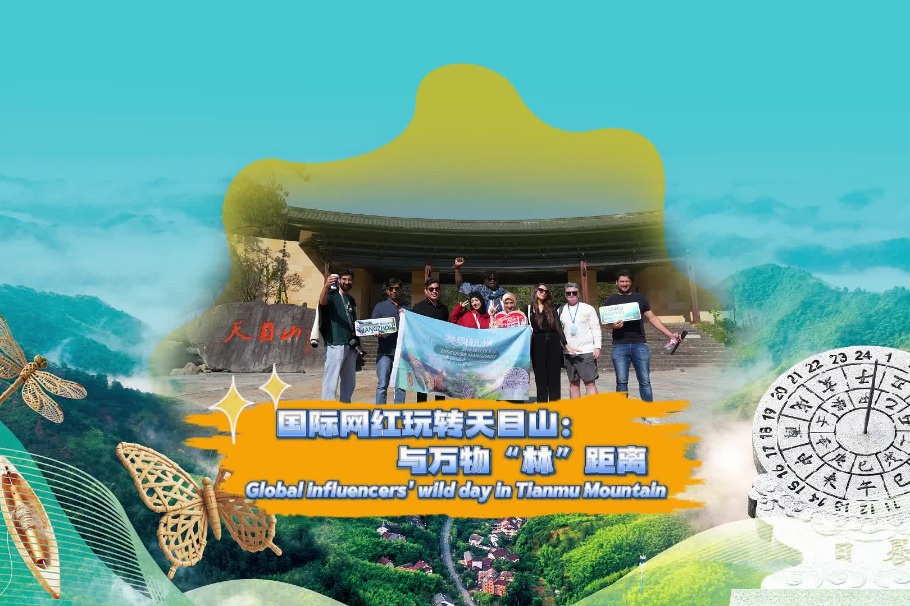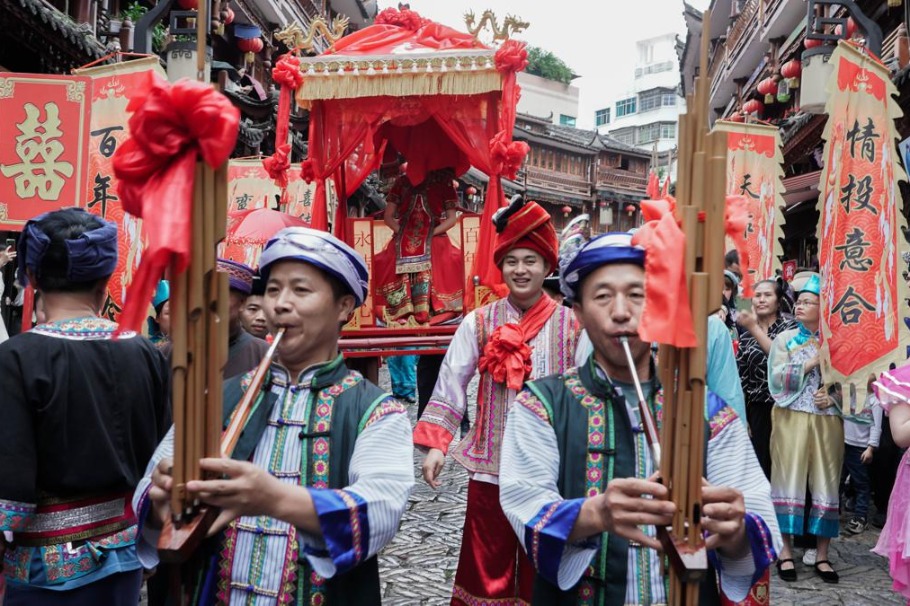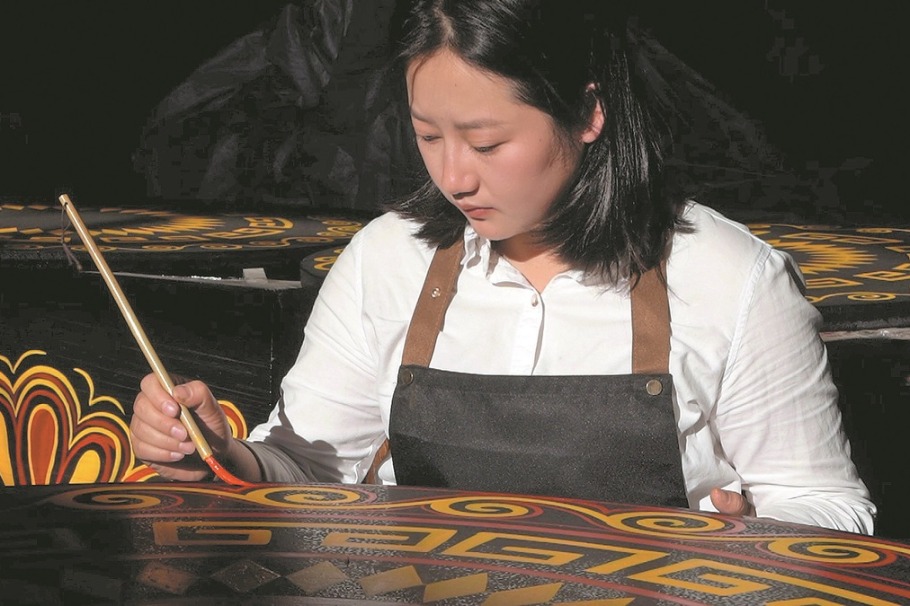Hong Kong senior retraces Long March
74-year-old retiree says spirit of Red Army showed Chinese people what faith, perseverance and unity can achieve

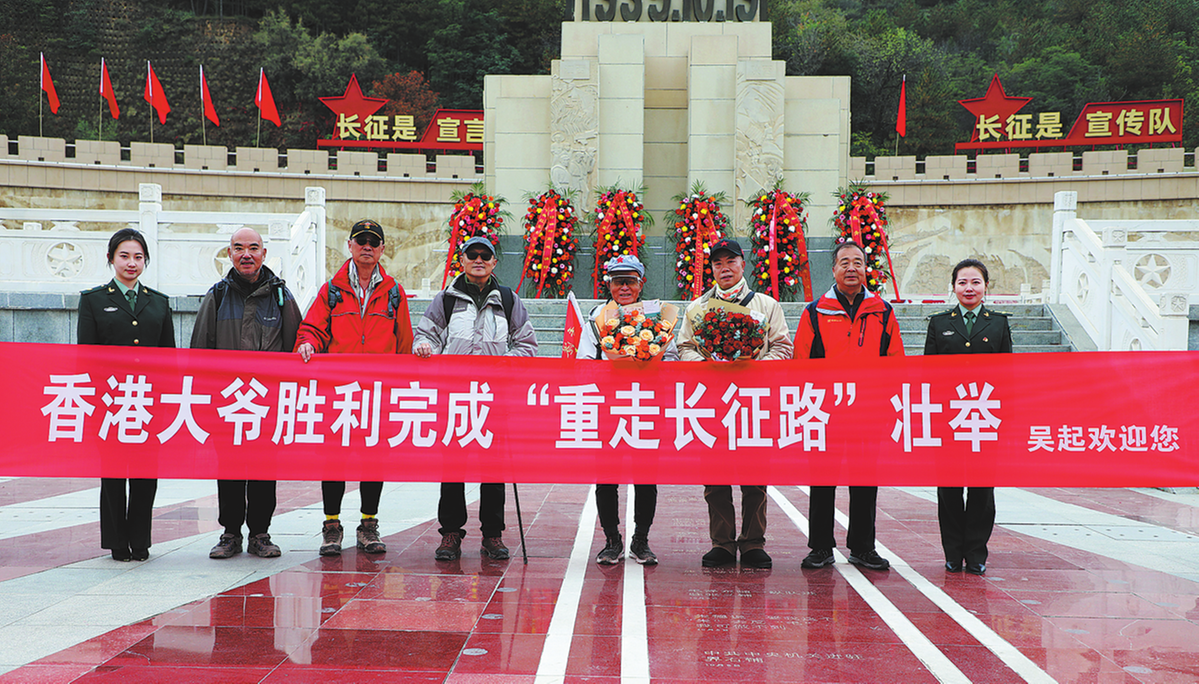
"If the Red Army could march through hunger and gunfire, how could I give up halfway?" With this quiet conviction, 74-year-old Hong Kong resident Michael Cheng Chun-yim took his final steps into Wuqi township in Shaanxi province on Oct 19, roughly 90 years after the Red Army completed its historic Long March (1934-36) there.
It was the moment he had dreamed of for decades.
A year earlier, on Oct 17, Cheng had set off alone from Yudu county in Jiangxi province, following in the footsteps of the Red Army along a route spanning 12,500 kilometers. For him, it was not merely a test of endurance, but a pilgrimage, a journey to measure faith with his own footsteps and to witness how the land once scarred by hardship had been transformed by time.
Over a period of more than 300 days, Cheng walked some 5,000 km across eight provincial-level regions — Jiangxi, Guangdong, Hunan, Guangxi, Guizhou, Yunnan, Sichuan and Gansu — climbing snowcapped mountains and crossing vast grasslands.
He rose at dawn, walked eight to 10 hours until sunset, and spent his nights in modest guesthouses, where he ended each day by writing in his Long March diary.
His bond with the Long March began in 1972. "When I was a university student, I read Red Star Over China by Edgar Snow," Cheng said. "That book opened my eyes to the spirit of the Red Army — their ideals, perseverance and unity. It planted a seed in me."
For decades, Cheng nurtured a fascination with Chinese history from his home in Hong Kong. Yet the idea of retracing the Long March remained only a dream. Until recent years, when retirement, better infrastructure and improved public safety on the Chinese mainland made it possible.
"China has developed so rapidly in recent decades," he said. "I thought it was time to walk through history, to understand my country not from books, but with my own feet."
Even for younger adventurers, Cheng's journey would be a monumental feat. Carrying a 15-kilogram backpack, he trekked through scorching southern heat and endured freezing winds in the Northwest. "Of course it was hard," he said. "But each step tested my will. If the Red Army could endure hunger and battle, why couldn't I bear a little pain?"
Cheng's long-time hobby of running marathons and hiking helped him prepare physically. Yet he believes endurance depends more on the mind than the body. "Before I started, I asked myself, 'Do I really want to do this?' If your heart isn't firm, you'll give up easily. But if your goal is clear, nothing can stop you."
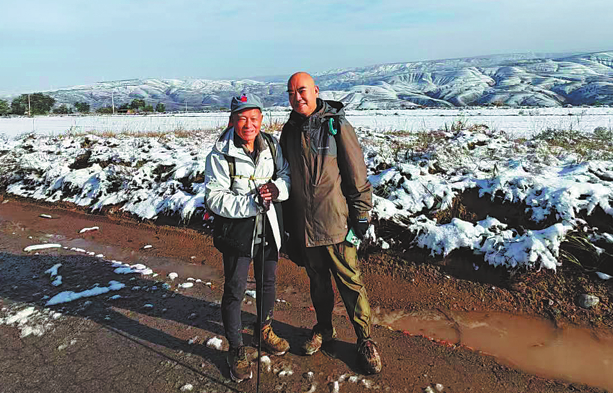
Along the way, he found warmth in countless encounters with ordinary people — farmers, shopkeepers and villagers who offered him food, a place to rest, or simply a word of encouragement. "I never met a cold-hearted person," he said. "Their kindness reminded me that the spirit of unity and mutual help that once guided the Red Army still lives on in China's countryside."
Every night, no matter how exhausted, Cheng spent two hours writing his diary, recording the day's route, encounters and reflections, along with stories and facts related to the Long March. "Sometimes I imagine how the Red Army must have felt walking through these same mountains," he said.
After arriving in northern Shaanxi, he reflected in his diary on the comprehensive management of the Loess Plateau, calling it a "systematic project". "China has developed an integrated approach," he wrote, "with a focus on soil and water conservation and sustainable development."
Publishers have already approached him about turning his diary into a book, but Cheng remains modest. "I'm not a writer," he said. "But if my story helps more people, especially young Hong Kong residents, understand our nation's history and the spirit of the Long March, then it will be worth it."
For Cheng, the Long March is not just a historical journey — it is a living metaphor. "Our lives are all long marches," he said. "The Red Army showed us what faith, perseverance and unity can achieve. In today's prosperous times, young people may not face the same hardships, but challenges still exist — competition, uncertainty and the search for purpose. The Long March spirit can guide us through all that."
As he reached his final stop in Wuqi — the historic end point of the Red Army's journey in Shaanxi — Cheng felt both fulfillment and peace. "I've walked far enough," he said softly. "This is the hardest thing I've ever done. And now, I can go home with no regrets."
Contact the writers at huyumeng@chinadaily.com.cn

- Hong Kong senior retraces Long March
- Deaf children's choir finds rhythm in verse
- 'Field poetry' gives voice to rural children's hopes, fears
- Chinese cities dominate global science hub rankings
- Taiwan tea maker seeks mainland ties at cross-Strait expo
- Major progress reported in water conservation in Xizang


















